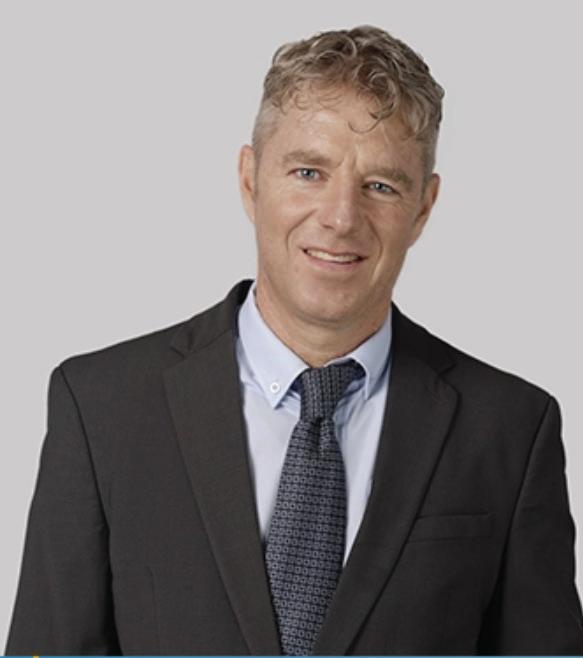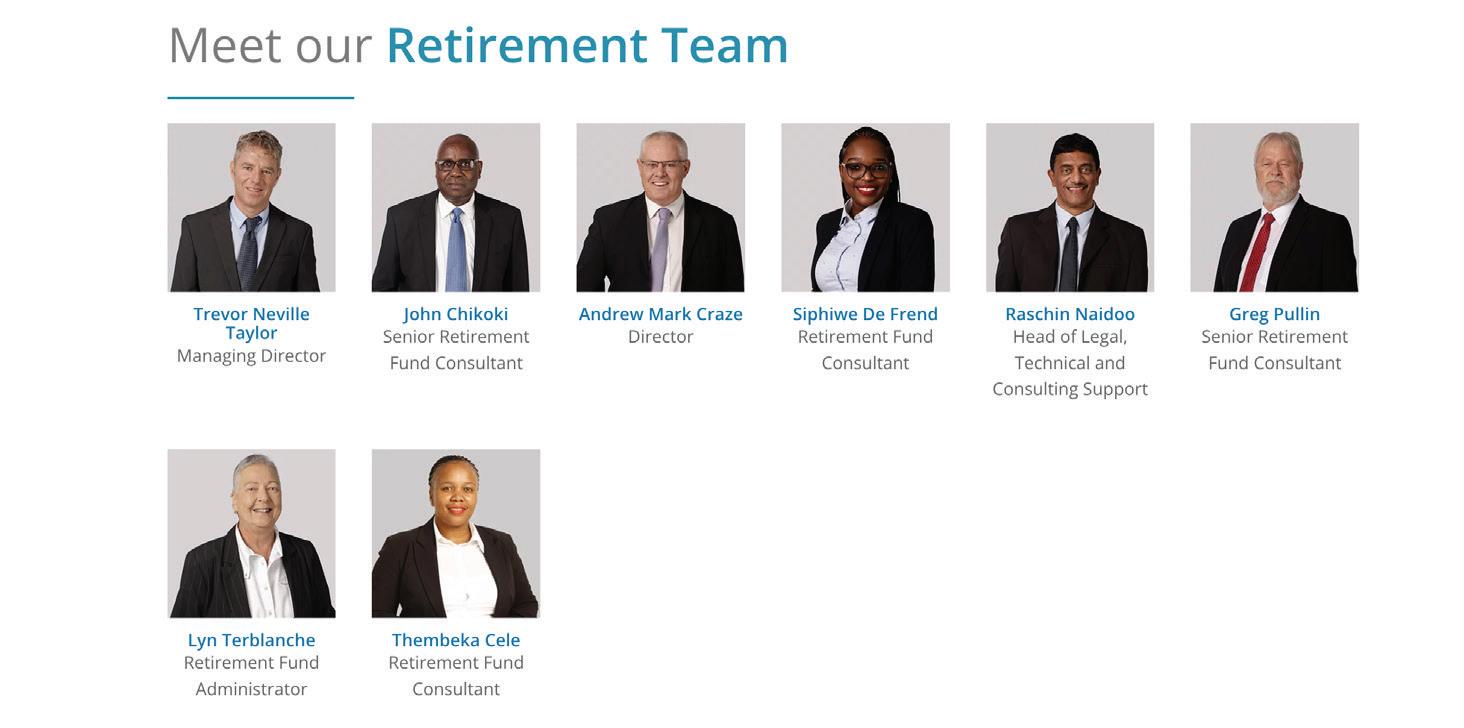
11 minute read
Leading DEI must begin at a personal level
Anél Bosman, Nedbank
Anél Bosman is the Group Managing Executive of Corporate and Investment Banking (CIB) at Nedbank. She leads a team of investment bankers and financial experts who provide transactional, corporate, and investment banking services to local and global markets. CIB’s client base includes leading corporations, financial institutions, state-owned enterprises and governments across Africa.
She started her career as an economist and has grown into executive leadership roles in a highly diverse and dynamic organisation. It is within her current role that she identified the urgency to drive Diversity, Equity and Inclusion (DEI) and thus embarked on the journey to both support her fellow leadership team members as well as to walk the path herself, accelerate her learning, and lead by example.
“I have learnt that DEI is not a perfect linear process, but a complex, iterative journey of discovery and personal growth. An important part is the creation of psychological safety for leaders and everyone in our business unit to be intentional about transformation, to learn from their mistakes, recover, and continue with the aim of making Nedbank the best place to work. We encourage all leaders to use their power to create inclusion and speak up against acts of discrimination.”
“At Nedbank, we believe that transformation is both a social and an economic imperative – an economic imperative that results in financial benefits for the organisation, as well as contributes to the upliftment of the community in which we conduct business. I cannot overemphasise the importance of a diverse and inclusive workforce in enhancing productivity, innovation and creativity – the driving forces of our business growth. We are committed to transforming and advancing a national social compact, to be a catalyst for inclusive growth and enhance social cohesion in South Africa. Our philosophy for purpose-led transformation is that it must transcend legislation to meet national interests while leveraging the components of human, socioeconomic, financial and leadership capital.”
Many believe that adopting a DEI focus can dilute productivity and performance, at least for a short while. In fact, it is a common narrative to equate DEI or transformation to a lowering of standards. However, Anél has achieved both her goals – driving a powerful message of change and transformation while leading Nedbank’s CIB to new heights.
Anél wants to play her part in paving the way for more women to be appointed in executive positions in Nedbank. Women of all races can excel in this, and any field if provided with the same opportunities and support as their male counterparts. Succeeding in both gender equity and delivering on the goals and objectives of the bank is what gives her the confidence of being on the right track. Her position as head of CIB presents her with the opportunity to support other women in the investment banking industry, and also to increase women’s economic participation.
How has she practically led diversity, equity and inclusion in her role?
CIB has been on a DEI journey for the past four years, aligning the head, the heart and the hands – the head representing positioning and thinking, the heart sensitising and gaining skills and awareness, and the hands affecting change. So far, significant progress has been made through conversations, surveys and awareness. This progress has manifested in real change at CIB.
CIB has approached the DEI journey from three levels, namely the systemic and organisational level, the intra- and interpersonal level, as well as the external level as it is not operating in a vacuum. On an interpersonal level, the CIB team reflected on their personal areas of growth by having conversations and workshops. Coaching sessions equipped them with skills to address their unconscious biases and awareness of micro-aggressions and their impact on those they lead. At a systemic level, CIB ensures that policies and systems, procedures, and practices are checked for fairness. Externally, CIB uses its financial expertise to promote social development and foster economic equality. It also devises innovative solutions for its clients to promote inclusive economic growth in South Africa.
The accolades have been adding up: Investment bank of the year at Environmental Finance IMPACT Awards 2021; Best Bank for Sustainable Finance in Africa by Euromoney; The Banker deals of the year 2021 – Africa; and Investment Advisor category-winner for Black economic empowerment deals by deal flow and deal value for 2020. Anél believes that while these are incredible industry achievements, they do not begin to reflect the many hidden milestones achieved, step-bystep, over the past few years in her team’s uncompromising collective effort, dedication and perseverance. Through unprecedented times and in an incredibly challenging environment, many long hours have been spent finding solutions and achieving success.
The implementation of a new agile, inclusive and iterative strategic process has allowed her team to draw on the collective wisdom of virtual teams, made up of people across the business, and to build an inclusive, flexible, and agile organisation that can adapt to a fast-changing environment with the right people, systems, and strategic levers. She believes that the strong foundation that they have laid, as well as their commitment to the ongoing journey, ensures that they build a culture with diversity, equity and inclusion at its heart. They will keep challenging the way things are done to capitalise on the power and value of their people.
Anel’s mentees celebrate her as a leader who is not afraid to ‘go first and take up the challenge’ while learning as she leads. It took a sizeable investment of time for her ExCo team to undergo the nine different DEI experiences, including 360 assessments, visioning and strategic pillars, (unconscious bias, gender identity, race and systemic racism, generational differences and diversity of thought), but she had committed to the work and she led her team through it. This is still a work in progress, but it is unfolding to be a story of determination and success.
My take away lessons from Anél’s leadership
1. A leader who is not afraid to ‘go first and take up the challenge’ is putting a spotlight on themselves and can attract undue pressure and scrutiny. It is said that ‘the tallest tree catches the most wind’ but Anel was willingness to lead from the front and take her cluster through a comprehensive ten step DEI process is testament to her belief in transformation.
2. DEI and transformation work can appear unrewarding at times- when you think you have made some bold moves and strides, some feel the pace is not fast enough. While I have seen some leaders throw in the towel because of many such challenges and even resistance along the way, I saw in Anel a leader who is willing to be wrong, and who sees hurdles not as permanent blockages but inflection points, a chance to grow ,stretch and jump into a new opportunity.
3. When you lead a business with its core focus being Investment Banking, demonstrating the business imperative of DEI requires a constant reminder to stakeholders that DEI is not just a ‘nice to have’ but rather integral to the business and its success.
4. It took a sizeable investment of time for her ExCo team to adopt a systemic approach to this work (instead of a ‘tick the box’ workshop approach) by going through the ten different DEI Experiences ranging from 360 assessments, organisation-wide surveys, visioning and developing strategic pillars, unconscious bias, gender identity, race and systemic racism, generational differences, diversity of thought and appointing Change Champions to support internal efforts. This is how Anel committed to the work and she led her team through it.
5. Once the exco begins the journey, it needs to be embedded in the system and be part of business as usual as opposed to relying on workshops and programs. The work in CIB continues and DEI is integrated into every aspect of the organisation’s life.
Is this a perfect process?
Not at all. There are many things that sometimes go off plan. I have never come across a perfect DEI journey where one achieves everything they have set themselves to achieve in exactly the timeframes they set at the beginning but I have seen leaders like Anel, who continue to focus on the vision and be steadfast in driving company performance while at the same time working hard to create an inclusive culture for all to excel and feel they belong .
Click to watch Anél’s feature on the Nedbank channel
ESTABLISHING SOCIAL CAPITAL: LEADING THROUGH REAL CONNECTIONS
Trevor Taylor, Chartered Employee Benefits
A pioneer and entrepreneur at heart, Trevor Taylor is a founding member and Managing Director of Chartered Employee Benefits (CEB). Born of British immigrant parents, Trevor credits his parents’ raising him with an awareness of human rights while living in apartheid South Africa. This foundation is what has turned him into an advocate for Diversity, Equity and Inclusion (DEI); even though he shies away from being called a Diversity Champion. To him, it is simply about treating people fairly and being respectful to others.

Trevor’s journey to the role started with a Law Degree from Wits University with his first job in the industrial manufacturing sector, running a galvanising plant in the south of Johannesburg. It is here where he had his first encounter with unions and an introduction to the different cultures, ethnicities and conflict one can sometimes encounter in the South African workplace. He cites a time when employees locked management in a storeroom demanding to access their pension funds. While this was an impossible request to deliver on, what stood out for Trevor was the lack of communication to employees regarding this. This lesson would prove to have a lasting impact and become a building block to founding CEB, after five years in the Financial Services sector.
Championing Diversity, Equity and Inclusion
In describing his understanding of DEI, in addition to the lessons derived from his parents to treating people fairly and being respectful to others, Trevor also credits a lesson from Ernest Hemingway: “There is nothing noble in being superior to your fellow man; true nobility is being superior to your former self.” He firmly believes that “In a business, whether you are an MD, the consultant or the person who cleans the kitchen, we are all equal, we just have different jobs.”
This approach was instrumental in reaching target audiences as it allowed CEB to break down barriers, build on this and grow the organisation, which has now allowed him to take on the role of overseer and driving business development. Even so, Trevor acknowledges that unconscious bias is still prevalent, whether in meeting potential clients, or in interview panels.
My take away lessons from Trevor’s leadership
1. Learning from those he is leading: Trevor has a firm belief that where your education and where you come from does not make you a better employee or leader than anybody else. Rather, it is the consciousness and willingness of a leader to assemble a team of people with different backgrounds and life experiences that will bring innovative and amazing ideas, making DEI a good business decision.
Though mentoring is often viewed as the mentor being the giver, Trevor sees this relationship as a two-way street, with the mentee also giving valuable lessons for a leader to do personal introspection and grow along the way.
2. Plan for succession in good time: Trevor is already in the process of mentoring his successor in the business – an ode to ‘diversity creates strength’ and a reward to his recognition that different backgrounds are an asset to the growth and development of the organisation.
3. Authentically connecting with staff: One of the ways Trevor has managed to scale the cultural divide is through his love for soccer and South African history. Through soccer, he can make connections, engage and spend more time with people not ordinarily in his social and working sphere. With the recent Rugby World Cup victory by the Springboks, we saw evidence of how sport remains a powerful instrument of unification of races and genders in SA.
4. Educating the client on DEI: Trevor acknowledges that the client is king, but also believes that they are not always right and that not every client is the right fit for you. This is where ethical leadership is tested and one must know when to walk away. He acknowledges that corporate South Africa has come a long way in this instance, but the SMME sector is still a challenge; with clients wanting to prescribe the demographic of the person they want to deal with.
The CEB Executive Leadership team is an example of diversity, with the blend of race, gender, experience and age.












